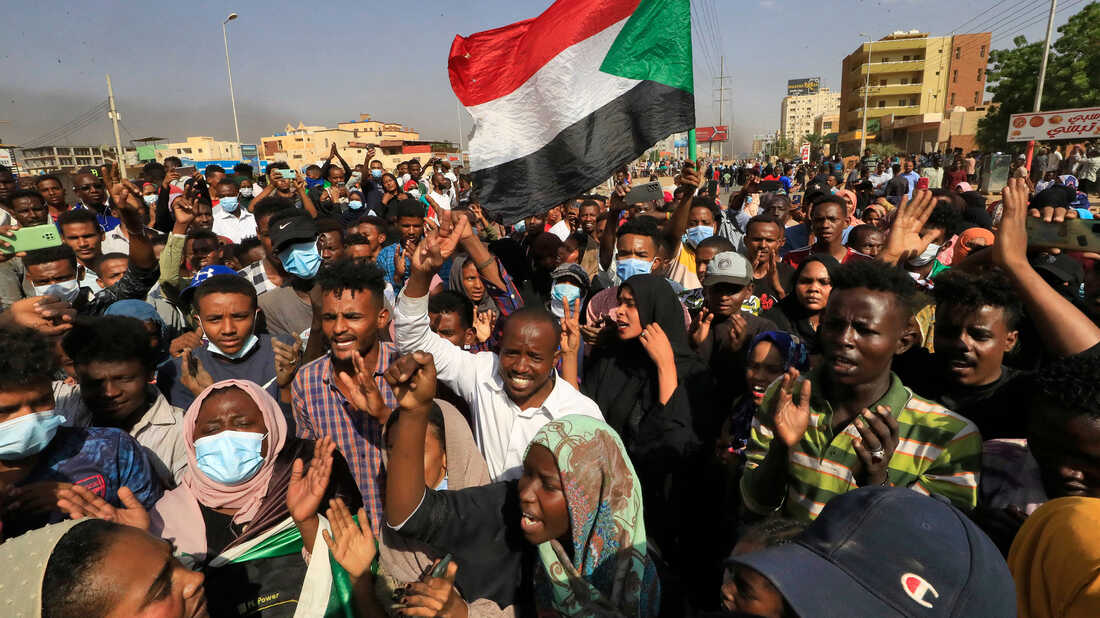
Sudanese protesters lift national flags as they rally on 60th Street in the capital Khartoum, to denounce overnight detentions by the army of government members, on Oct. 25, 2021. AFP/Getty Images hide caption

Sudanese protesters lift national flags as they rally on 60th Street in the capital Khartoum, to denounce overnight detentions by the army of government members, on Oct. 25, 2021.
AFP/Getty ImagesIn recent years, Sudan has been home to one of the most successful pro-democracy movements on the African continent. Now, a military coup threatens that movement's progress.
NPR's Eyder Peralta, who has been reporting in the region, explains how it all unfolded — and what could happen next.
Read more on the events in Sudan from NPR's Becky Sullivan: The coup in Sudan could threaten U.S. influence in a strategically important region.
In participating regions, you'll also hear a local news segment that will help you make sense of what's going on in your community.
Email us at
This episode was produced by Brianna Scott. It was edited by Eyder Peralta, Mark Katkov, Lee Hale, Brent Baughman, and Matt Ozug. Our executive producer is Cara Tallo.

 Live Radio
Live Radio